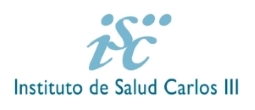Cód. SSPA: IBiS-B-09
Movement disorders are a group of neurological diseases that involve either too much or too little movement. The most prevalent disease in this field is Parkinson's disease (PD). The objectives of the group focus on the study of PD and other movement disorders, both from the point of view of clinical and experimental research. The group stands out for its multidisciplinary nature, which is organized into the different research lines detailed below and allows for transversal research projects based on the integration of different research techniques and lines of study.
Reseach Lines
- Genetics
Our research activity in the field of genetics is focused on the characterization of genetic biomarkers to study the pathophysiological mechanisms underlying PD. One of our major objectives is the identification of genetic variants involved in PD using target sequencing, exome sequencing and whole genome sequencing techniques, among others, and their implications on the pathophysiology of the disease.
We are also focused on the study of genetic markers involved in the development of the complications with greatest impact on PD: levodopa-induced dyskinesias (LIDs), impulse control disorder (ICD), cognitive impairment and visual hallucinations; as well as their role in response to certain drugs (pharmacogenetic markers).
Another objective is to investigate the value of extracellular vesicles (VEs) as useful diagnostic and prognostic biomarkers in PD. VEs are vehicles of intracellular communication with the capacity to influence various physiological functions due to their molecular contents. Another relevant aspect is the study of glucocerebrosidase activity profiles detected in blood and fibroblasts in PD patients, as well as microRNAs related to prodromal PD, with the consequent contribution towards developing targeted and personalized treatments.
Specifically, the study of fibroblasts from PD patients represents an important patient-specific cellular model that reproduces the pathophysiology of the disease. Besides PD, the field of genetics also focuses on studying other movement disorders such as dystonia. Specifically, we use targeted sequencing in the task of identifying new genes linked to this disease.
- Neurophisiology
The research activity within the line of research in neurophysiology focuses on the study of the neurophysiological mechanisms underlying different movement disorders, as well as different motor and non-motor complications, that are frequently associated with these disorders. To achieve this, our laboratory uses a variety of techniques and technology which allow us to obtain precise and quantifiable information about different physiological systems in our patients. These techniques include non-invasive brain stimulation (TMS, tDCS), high-density EEG, electromyography, motion sensors, evoked potentials, and psychophysiological recordings, among others. We also work with computational models that allow us to simulate different precision parameters of our studies.
One of the main focuses of research in this line is the involvement of cortical mechanisms in different non-motor disorders in Parkinson's disease, such as impulse control disorders or fatigue. We also study electrophysiological measures of general cognitive ability and specific cognitive tasks. These measures can be monitored over time and used to study cognitive decline in dementia. We study these measures in conjunction with the line of research in neuroimaging.
- Neuroimaging
The line of neuroimaging research complements the group’s methodologic portfolio by adding a neuroanatomic perspective to neurophysiologic and genetic findings on the pathophysiology underlying PD and other movement disorders as well as their diverse motor and non-motor clinical features. For this, we employ multimodal MRI and molecular imaging (PET/SPECT) techniques to derive detailed regional assessments of molecular, structural, and functional changes of specific brain circuits involved in these disorders.
These neuroimaging measurements are then used to study the differential cerebral correlates of specific motor and non-motor clinical features of PD, and how these could be used as predictive neuroimaging biomarkers in prognostic models of individual disease evolution. In this respect, a major focus of our research pertains to the study of the different neuronal circuits implicated in the heterogeneous trajectories of PD-related cognitive decline and their differential risks for developing dementia.
This neuroimaging information is further integrated with genetic and fluid biomarker data in order to study possible molecular drivers of specific regional patterns of neurodegeneration and their associated clinical/cognitive manifestations. In addition, we use advanced computational analyses for determining the regional imaging features that are most helpful for aiding early detection of PD and for the differential diagnosis of parkinsonian syndromes. An ultimate goal of this research is the development of novel, clinically useful neuroimaging tools for more accurate risk stratification, early and differential disease diagnosis, and personalized prognosis of cognitive decline and other disease complications that commonly occur in PD.
- Clinical
Within the clinical research line, studies are based on the research of biochemical, molecular, and phenotypic biomarkers that promote the characterisation of movement disorders, especially PD. Studies regarding the role of lipid metabolism and peripheral inflammation in the etiopathogenesis of PD are being carried out. The group also works on the study and identification of phenotypic and molecular markers in prodromal PD, the premotor phase of the disease, which can determine the conversion to definite PD.
The group includes specialised neurologists that are part of the Movement Disorders Unit (MDU) of the Neurology Unit of the Virgen del Rocío University Hospital, Seville. The MDU is a national reference unit for rare diseases with movement disorders (CSUR) and has a high level of healthcare activity. The unit is also part of the European reference network for rare neurological diseases (ERN-RND).
The unit stands out for the application of new advanced therapies in the treatment of PD and other movement disorders, and it is a centre specialised in functional surgery for deep brain stimulation in PD. For all these reasons, the centre is also at the forefront in clinical trials, especially in PD, but also in other movement disorders such as atypical parkinsonisms or Huntington's disease.















